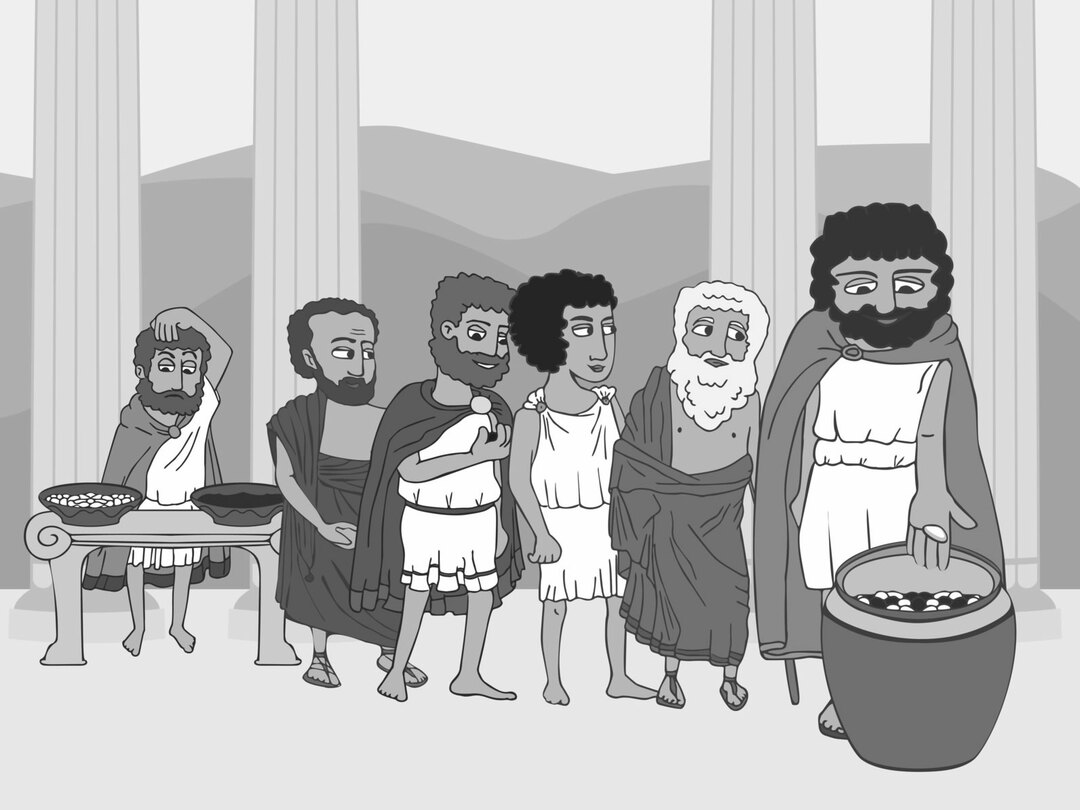Tragedy Features
Literature / / July 04, 2021
Tragedy is a literary and theatrical genre originating in ancient Greece, as it is part of the dramatic genre, it has an elaborate style in which the main characters face ineffable or inevitable and generally fatal destinies, against the designs of destiny or the gods, although there are also tragedies called sublimation in which the protagonist, through his virtues, (strength, courage, compassion, integrity, temperance, etc.), they face adversities and obstacles that come their way, managing to get ahead, provoking the admiration of the reader or viewer.
Also known as tragedies are the various catastrophic events, such as accidents, destructive natural phenomena, earthquakes, tornadoes, hurricanes, as well as fires, floods, and various accidents, with fatal consequences, for human beings, and their goods.

Some Characteristics of the Tragedy:
The tragedies originated as religious representations, later becoming theatrical representations of various themes; As the spheres in which the tragedy unfolds spread, they begin to focus on the spheres of the political and social, and transforming into a genre of its own, encompassing both theater and literature.
One of the central axes of the tragedies is the reestablishment of an "order", which is done through various painful experiences, which are happen within the plot, as in the case of the Oedipus Rex tragedy, where the family order was broken, so that fate cruelly "readjusts the order ”, through various calamities and misfortunes that try to leave the viewer a lesson on morality, respect for the gods, or on the human mind.
Entertainment.- Like other manifestations of human thought, it is aimed at entertaining, thus, since it was "instituted" as a theatrical genre detached from religious spheres, a of the cultural manifestations that man has used to accommodate "recreation" through the distraction of everyday life, which provides this type of entertainment.
Misfortune.- It is characteristic of the tragedy that the main character or the main characters suffer misfortunes, either in love, or in any field in which they are develop the character, as for example in the cases in which the plot deals with voyages by sea, where misfortune leads to the shipwreck, or when a character suffers an accident, which causes him some permanent damage, and various misfortunes that happen to the protagonist or his loved ones within the plot.
Didactic use.- Since ancient times, tragedies have been used to teach values such as morality, family values, respect (for the gods, for the rulers, parents, society, as well as traditions), through the use of visible examples in literature or in works theatrical. For example, where due to a disobedience or disrespect towards a god or morality, the character in question within the plot, receives a "punishment" that is the product of her wrongdoing or decisions.
Review.- Even though many works focused on instilling values, this genre is frequently used to criticize public figures, be these rulers, wealthy people, or common people, and also making criticism of the uses and customs of the society in which they are lived, this was widely used in Greek tragedy, where it was customary to refer to public people, (kings, generals, etc.).
They explore the human mind. In this genre, an exploration of the different facets of the human being is made, both from the spiritual point of view, and from the point of view psychological, since various facets of the human mind are expressed within it, being explored from the feelings of love, fear, hatred, fear, joy, madness, sadness, euphoria, shame and pride, even the thoughts that the human mind represses, such as incest, (Oedipus Rex), murder, robbery, or various sexual deviations.
Supernaturality.- In classical works (Greek and Roman), tragedy tends to have supernatural overtones, having frequent interventions of the various gods, as well as other beings such as spirits, ghosts, or animals fantastic. This was preserved to some degree in the tragic-tinged works of later times, so it is common to find in works current tragic events the intervention of a supernatural being or entity, be it a ghost (as in Shakespeare's Hamlet) or another kind of being.
Outcome.- In most tragedies, the denouement or end of the play or writing usually ends in a fatal event; the protagonist suffers various calamities and misfortunes, which denote the predestination of destiny, which is inescapable, despite the efforts made by the protagonist to avoid it, except in some modern tragedies that tend to suppress the tragic outcome by excellence, for endings in which the protagonist obtains what he seeks or desires, after having endured the vicissitudes of destiny tragic.
Story.- The tragedy has its origin in the Greek religious representations, which were made in honor of the god Dionysus (Bacchus for the Romans). represented his life, death and resurrection of him, later becoming representations on common and current themes of the time, such as the lives of the other gods and kings, gradually evolving to be representations of man's life, with marked spiritual and psychological connotations, and didactics. In the tragic representations, (as in the rest of the Greek theater), masks were used, in which expressions of fear, mockery, joy and other human feelings were drawn.
Over time the tragedy was transformed into a literary and theatrical genre itself, some of the first authors of this genre being Thespis, Frínico, Quérilo, and Prátinas, and authors such as Aeschylus, Sophocles, and Euripides taking fame, and already in times closer to us authors such as Arthur Miller Goethe, Voltaire, or William Shakespeare among others.
Some ancient Greek tragedies:
Ajax, Antigone, The Traquinias, Oedipus Rex, Electra, Philoctetes, Oedipus in Colonus, Alcestis, Medea, Hippolytus, The Heraclids, The Trojans, Andromache, Hecuba, The Supplicants, Iphigenia among the Taurus, Electra, Helena, Heracles, Orestes, Iphigenia in Aulide, Las Bacchantes, and El Cyclops.
Other tragedies made in more recent times:
Macbeth, Othello, Romeo and Juliet, and They Were All My Children, by William Shakespeare and Arthur Miller respectively.
Click to see examples of tragedy.

